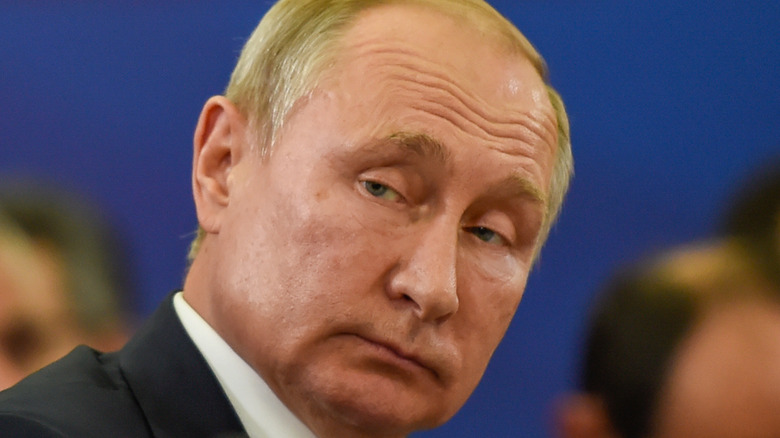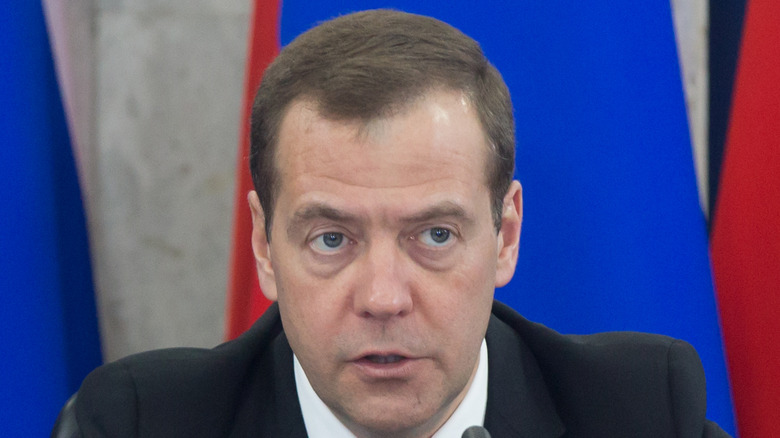How The Constitution Prevented Vladimir Putin From Running For President In 2008
Starting out his political career as a KGB agent under the Soviet Union, Vladimir Putin has certainly climbed the ranks in the new post-Cold-War world. Initially, he was the Prime Minister of Russia under Boris Yeltsin until 1999. That year, Putin became the second of just three people to hold the office of president, and has collectively held the position for over 18 years. While many have understandably noted this as an extremely long time for one person to hold executive power (relative to most western nations), Putin did not hold the office for these years consecutively (per Biography).
Prior to the 2020 referendum that saw huge changes to the constitution, it had previously forbade presidential candidates from pursuing more than two consecutive terms — which after 2012 were extended from four years to six. Afterward, they could seek re-election, but not until another president had served at least one term. It is for this reason that Putin's hold on the office was interrupted in 2008 (via Wilson Center).
Putin's successor was a close ally of his, while he became prime minister
During this time, Putin once again became Russia's prime minister, while the presidency was won by then-former First Deputy Prime Minister Dmitry Medvedev (pictured above) according to Britannica. While seemingly a sign of the constitution doing its job, Medvedev's overwhelming victory was in many ways another representation of cronyism. He worked closely with Putin both before and after his election, and it is a commonly held view that he was only propelled to the office by this association (via The Guardian).
Putin, meanwhile, still held an exceptional amount of power as prime minister, and could closely "advise" the president on stately matters. When Medvedev's first term ended, Putin was reelected, and that same year, he extended presidential term limits. Putin's 2020 constitutional reforms additionally allow him to seek further reelection in 2024 and 2030 (per Radio Free Europe).

